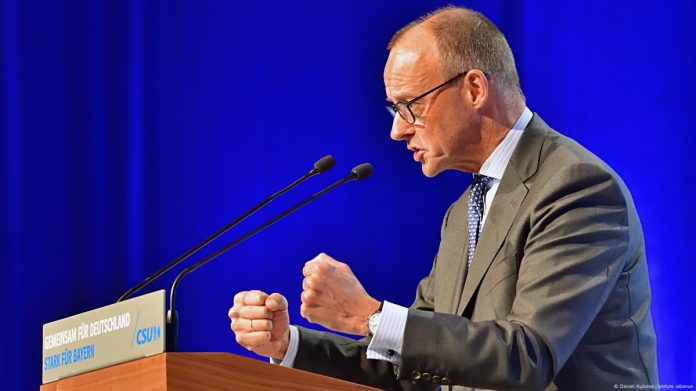23 лютого 2025 року у Німеччині відбудуться позачергові парламентські вибори. Вони стали наслідком політичної кризи, що розгорнулася через розвал правлячої трьохпартійної коаліції (СДПН + Партія зелених + Вільні демократи). Після виходу вільних демократів уряд Олафа Шольца втратив більшість і став урядом меншості.
Очікується, що 16 грудня парламент висловить недовіру чинному канцлеру, а країна офіційно почне підготовку до виборів. Президент Німеччини Франк-Вальтер Штайнмайєр підтримав цю ініціативу, назвавши 23 лютого “реалістичною датою”.
Хоча Шольц втрачає підтримку, його Соціал-демократична партія (СДПН) вирішила зберегти його як кандидата на посаду канцлера. Натомість найбільш популярною фігурою серед німців є міністр оборони Борис Пісторіус, який у свіжих опитуваннях випереджає не лише Шольца, а й лідера опозиції Фрідріха Мерца.
На тлі ослаблення позицій соціал-демократів зростає популярність Християнсько-демократичного союзу (ХДС) на чолі з Фрідріхом Мерцом. У разі перемоги він може очолити уряд, що суттєво вплине на політику Німеччини, зокрема у питанні підтримки України.
Мерц обіцяє радикальні зміни в оборонній політиці. Він відкрито підтримує надання Україні ракет великої дальності Taurus для ударів по російських цілях і виступає за відправлення військ НАТО в Україну, якщо Кремль не припинить агресію.
Експерти припускають, що новий уряд Німеччини, ймовірно, стане коаліційним. Політолог Олексій Якубін вважає, що це може бути “велика коаліція” за участю СДПН і ХДС, але з Мерцом як канцлером. При цьому він зазначає, що внутрішні розбіжності між партіями можуть відтягувати увагу від міжнародної політики.
“У період виборчої кампанії фокус на українському питанні зменшиться, що створює ризики для подальшої допомоги Україні”, — вважає експерт.
Своєю чергою, Іван Ус з Центру зовнішньополітичних досліджень наголошує на можливих позитивних змінах. У разі приходу до влади ХДС/ХСС та “зелених” підтримка України може стати ще рішучішою, включаючи надання зброї, яку раніше стримували політичні обмеження.
Незважаючи на політичні зміни, Німеччина вже запланувала масштабну військову допомогу для України на суму 1,4 млрд євро, яка має бути надана до кінця 2024 року. Пакет включає системи ППО IRIS-T, Skynex, гаубиці, бойові дрони та інші види сучасного озброєння.
Україна продовжує тісно співпрацювати з чинним канцлером Олафом Шольцом. Під час останньої розмови з Володимиром Зеленським Шольц підтвердив передачу чергової системи IRIS-T і наголосив на важливості збереження формату “Рамштайн”.
Хоча вибори у Німеччині можуть змінити склад уряду, стратегічна підтримка України залишатиметься пріоритетом для будь-якого нового канцлера. Однак період політичної невизначеності може стати викликом для Києва, адже увага Берліна частково зміститься на внутрішні питання.


